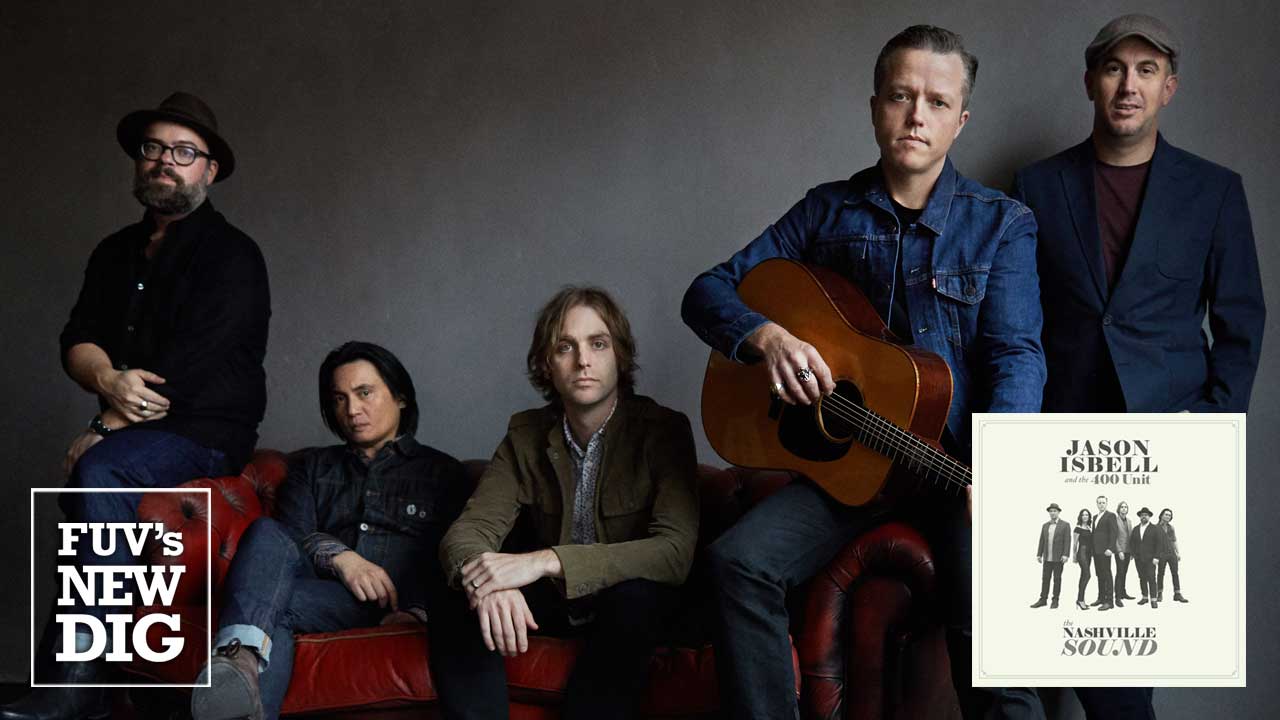Jason Isbell and the 400 Unit

Jason Isbell and the 400 Unit (photo by Danny Clinch, PR)
Jason Isbell and the 400 Unit
The Nashville Sound
Southeastern/Thirty Tigers
The title of Jason Isbell and the 400 Unit's new album is both a description and a declaration: The Nashville Sound is exactly what you hear, and it’s that sound that exemplifies what authentic, honest-to-goodness Nashville music is today.
Isbell follows his 2015 solo offering, Something More Than Free, with his first studio recording with the 400 Unit in six years. An Alabama native now based in Nashville, Isbell is in fine voice here: clear, pointed and demanding to be heard. His last two solo albums found Isbell looking inward, especially 2013’s Southeastern. The Nashville Sound casts its net wider, but never completely away from Isbell, or characters like himself.
Isbell amicably left Drive-By Truckers ten years ago and released his first solo album, Sirens of the Ditch, that same year. He followed his debut with the first album to feature his new band, the 400 Unit. The album, Jason Isbell And The 400 Unit, was released in early 2009. Isbell and the band returned two years later with a second album, Here We Rest, but since 2011, Isbell has concentrated on recording as a solo artist. For this album, he decided the time was right to strike up the band again.
On The Nashville Sound, post-election blues are flung around in “Hope The High Road,” but not without an attempt at finding some hope: "Wherever you are I hope the high road leads you home again/to a world you want to live in.”
“White Man’s World” deals with social privilege and racism from the point of view of a white man, disgusted over the hardships of the disadvantaged. The plight of the down-and-out coal miner, reeling as his industry dies, is lamented in the rocker “Cumberland Gap.” The acoustic “If We Were Vampires” is an emotionally gripping love song that features Isbell’s wife and bandmate, country artist Amanda Shires, on vocals. Proof of Isbell’s brilliant songwriting skills can be found in this song, featuring lines like, “It’s knowing that this can’t go on forever/Likely one of us will have to spend some days alone./Maybe we’ll get forty years together, but one day I’ll be gone/or one day you’ll be gone.”
The wistfully hopeful “Something To Love” closes the album with a sentiment that, despite the brutal state of the world, the future can be positive. In a message meant for his young daughter with Shires, Isbell sings: “I don’t quite recognize the world you’ll call home/Just find what makes you happy girl, and do it ‘til you’re gone.” It’s sound advice we all could use.
The presence of the 400 Unit adds bulk to many of the songs on this album. Melodies on The Nashville Sound range from acoustic numbers with electronic touches (“Chaos And Clothes”), jangly guitar-driven pop (“Molotov”), and crunchy epics (“Anxiety”). Once again, Isbell turned to producer Dave Cobb who also helmed the sessions for the albums Southeastern and Something More Than Free. Isbell plays acoustic and electric guitars, and the 400 Unit features original members Derry DeBorja (keyboards), Jimbo Hart (bass), Chad Gamble (drums), and Sadler Vaden (guitar). Shires is on strings and backing vocals. Isbell wrote all the songs on The Nashville Sound, with help from Shires on “Anxiety."
The Nashville Sound presents Isbell at the top of his game and reinforces his reputation as one of the premier songwriters in this country. With artists like Isbell at the forefront, the music of Nashville is a shining beacon of American country, Americana and rock.

